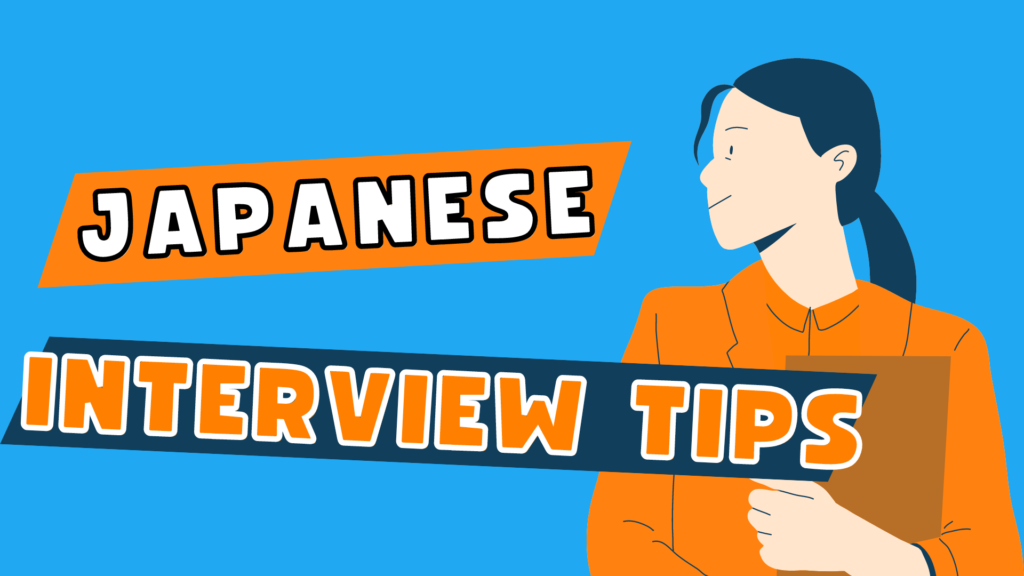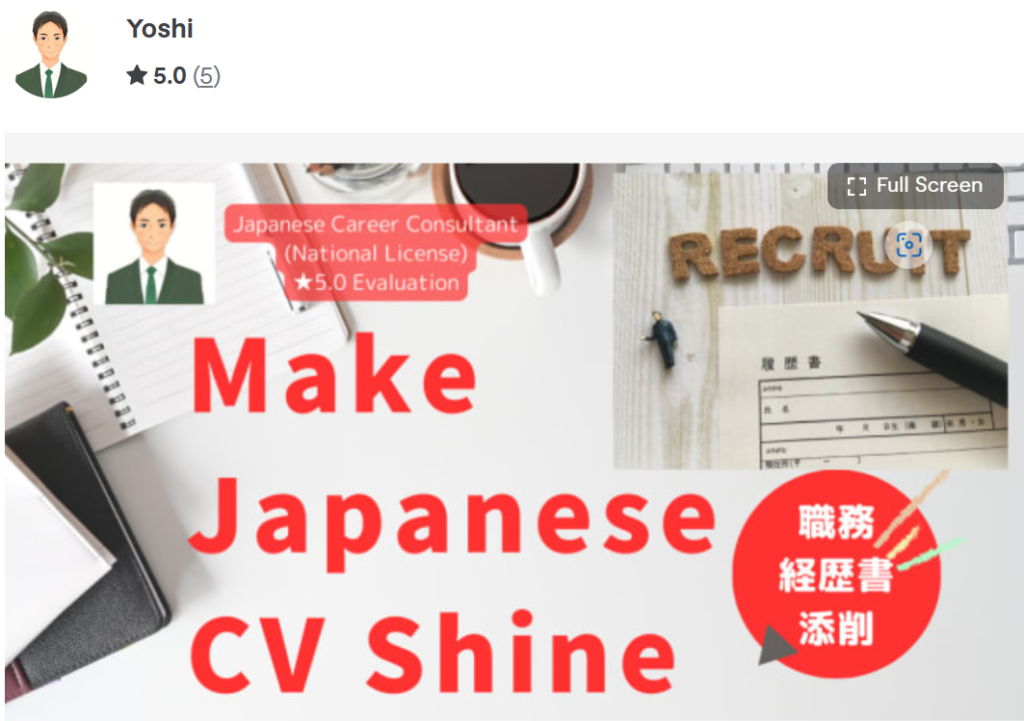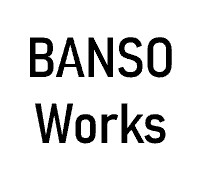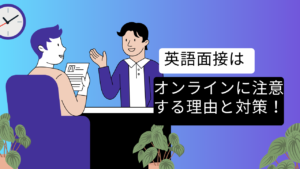10 job interview tips with Japanese you must know
By Yoshi, Japanese career consultant (national license) Published March 30, 2024

When interviewing for a job with a Japanese company, understanding and respecting cultural nuances can significantly impact your success.
Here are 10 essential tips to help you navigate your job interview effectively:
10 essential tips at Japanese job interview

1)Research the Company:
Before the interview, thoroughly research the Japanese company's history, culture, products, and services. Demonstrating knowledge about the company shows your interest and dedication.
2)Understand Japanese Business Etiquette:
Japanese business culture values politeness, punctuality, and respect. Better to arrive early, dress conservatively in professional attire with tie, and be prepared to exchange business cards with a bow. If you can bow well, your impression on the Japanese interviewer will be outstanding.

3)Practice Your Self-Introduction:
In Japan, the self-introduction (自己紹介, jikoshoukai) is an important part of any meeting, including job interviews. Prepare a concise and polite introduction, highlighting your background and why you're interested in the position.In a typical Japanese interview, self-introductions usually include your name, current affiliation, work history, and strengths.

Japanese professional service at Fiverr
4)Use Polite Language:
Employ polite language (敬語, keigo) throughout the interview. If your Japanese proficiency allows, using keigo demonstrates respect and understanding of Japanese cultural norms.
5)Listen Attentively:
Japanese communication often relies on non-verbal cues and reading between the lines (空気を読む, kuuki wo yomu). Pay close attention to the interviewer's body language and tone, and respond thoughtfully.Overemphasizing yourself is not a wise strategy. When the interviewer speaks, make sure to listen with interest to what they have to say.
6)Demonstrate Teamwork and Harmony
Emphasize your ability to work well in a team. The concept of harmony (和, wa) is highly valued in Japanese culture, so showing that you can contribute positively to a team environment is crucial.If you have experience accomplishing tasks through teamwork, sharing this during the interview will likely leave a positive impression.
7)Be Humble
While it's important to highlight your achievements, do so with humility. Bragging is frowned upon in Japanese culture; instead, acknowledge the support you've received from others in your successes.
8)Prepare for Common Interview Questions
In addition to standard interview questions, be ready to discuss long-term career plans and how you handle failure or challenges. Demonstrating perseverance (根性, konjou) is admired in Japanese culture.
9)Follow Up with a Thank-You Note:
After the interview, send a polite thank-you note or email to express your gratitude for the opportunity. This gesture is well-regarded and reinforces your interest in the position. Since excessive phone calls or emails can sometimes be unwelcome, it's best to simply send a thank-you email and leave it at that.
10)Understand the Hiring Process:
The Japanese hiring process can be lengthy, often involving multiple interviews and a detailed examination of your fit within the company culture. Patience and understanding throughout this process are essential. Be cautious not to give a bad impression by rushing or prompting for a decision if there's a delay in receiving the interview results.
By adhering to these tips, you'll be better prepared to approach a job interview with a Japanese company, showing respect for their culture and business practices.
Japanese textbooks
It is best way to learn by professional textbook.
Additional Note
The answer to whether it's better to speak Japanese is YES. The reality is that there are still few Japanese people who can speak English with confidence. Therefore, being able to speak even a little Japanese will likely provide the interviewer with a sense of reassurance.



